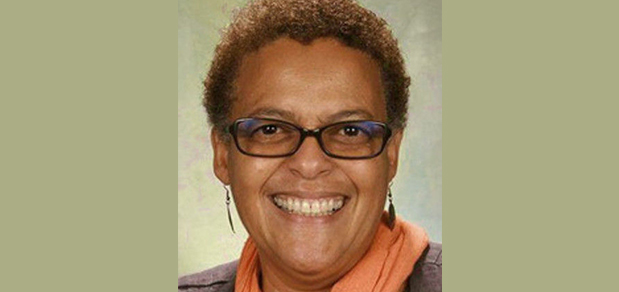In a world abundant with notable legacies, Adrienne Belafonte Biesemeyer emerges not just as an heir to a prominent name, but as a trailblazer in her own right. As the eldest daughter of the legendary entertainer and civil rights icon Harry Belafonte, Adrienne naturally inherited a legacy steeped in advocacy and change-making. However, this is not merely a tale of living under a famed shadow. Adrienne has carved her own path — from blitzing the world of mental health to making indelible marks in philanthropy and activism. Her life is a fascinating mosaic where family heritage gracefully interweaves with distinct personal victories.
Family Influence and Early Life
Picture a childhood embedded in activism and contemplation rather than playrooms and toys. Such was the formative world for Adrienne, ushered into a universe where dinner table discussions often touched upon social justice. Born March 8, 1954, Adrienne’s upbringing with Harry and Marguerite Belafonte guaranteed a front-row seat to transformative socio-political events. There was one moment, however, that stands out — a unique 1964 trip to Guinea. Fifteen-year-old Adrienne was not merely a casual traveler but was thrown into the deep end, helping organize the Ballet National Djoliba. Here, art met activism, setting a precedent for her future endeavors.
This foundational period didn’t just plant seeds; it sowed entire fields of conviction that Adrienne would harvest throughout her life. For starters, her early exposure to social activism equipped her with a unique lens to scrutinize global injustices and seek tangible remedies.
Academic and Career Path
It’s a long road from the glitzy environs of showbiz to the introspective corridors of academia, but Adrienne made this journey with aplomb. Holding a Bachelor of Arts in Art, she later took a notable pivot to earn a Master’s in Community Counseling. In a career spanning 25 years, she excelled as a mental health practitioner, extending her services to children and families in West Virginia. This wasn’t just clock-in, clock-out work; it was mission-driven.
The wheel didn’t stop rotating here. Adrienne soared to chair the West Virginia Board of Examiners of Counseling, a role where she didn’t just follow ethical guidelines — she shaped them. At large, this period highlights a cornerstone of her professional life, as she injected empathy into rule-making.
And we can’t skip her commitment to education. Her legacy lives on at the West Virginia School of Osteopathic Medicine. Recognizing the gap in healthcare accessibility, Adrienne founded the Center for International Medicine and Cultural Concerns — a venture exposing medical students to frontline healthcare realities in developing nations. Now, that’s educational escapism with a purpose.
Commitment to Philanthropy and Activism
Moving beyond the borders of local service, Adrienne co-founded the Anir Foundation in 1997 with her daughter, Rachel Blue. Here’s the catch: rather than scattershot efforts, this foundation focuses laser-like on specific domains such as housing, education, health, and cultural heritage — largely in Southern Africa and the Caribbean. In doing so, the foundation breathes life into underserved communities where resources are scarce, but potential is anything but.
Still connected to her family’s tradition of activism, Adrienne views philanthropy as a powerful engine for change. “We must make sure our footprint leaves something good behind,” she has reportedly remarked, echoing values handed down by her iconic father. Through the evolving landscape of global challenges, Adrienne maintains a pragmatic optimism: resources can be finite, but compassion should never be rationed.
Personal Life and Community Engagement
Home offline for Adrienne is the serene setting of Greenbrier Valley, West Virginia, where she shares life with her husband David and their children. Despite global commitments and far-reaching initiatives, Adrienne’s heart beats closest to where her roots dig deepest. Her steadfast commitment to family and community-driven causes shapes the core of her persona, and this is not merely lip service.
Local engagements — from sponsoring community events to spearheading local dialogues on health — keep the Belafonte spirit alive, albeit in a more quotidian manner. Adrienne believes in the power of community, not just as an abstract notion but as a wellspring of untapped potential. Her life refreshes the axiom: think globally, act locally.
Conclusion
Reflecting on Adrienne Belafonte Biesemeyer’s life journey, one sees a vivid tapestry where past legacies and new generations meet. Her devotion to mental health, education, and philanthropy harmonizes with the timeless values bequeathed by her family. In her pursuit of social justice, Adrienne doesn’t merely wear the Belafonte mantle — she reinvents it for a contemporary stage.
As we conclude this exploration, it’s essential to note that the mission goes on. Adrienne’s work, like life itself, is a continuum, not a closed chapter. For those eager to learn more about her efforts and potential avenues for contribution, check one such initiative showcased here. Whether on stage with Ballet National Djoliba or behind a desk at her private practice, Adrienne is a poignant reminder that legacy isn’t just inherited — it’s also earned.
Also Read:

